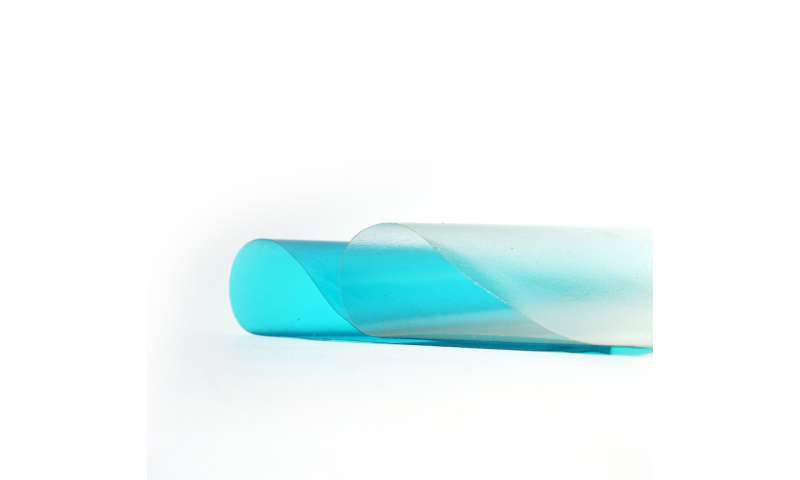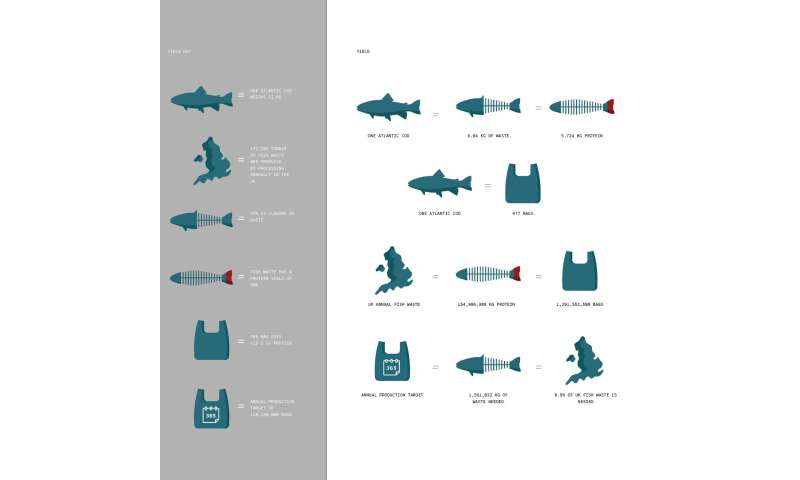
Laura Parker in National Geographic last year: Scientists have tried to get a handle on the amount of plastic that ends up in the seas and harm to birds, marine animals, and fish. .Billions of tons of plastic have been made over the past decades, say reports, and much of it is becoming trash and litter.
"The prediction that by mid-century, the oceans will contain more plastic waste than fish, ton for ton, has become one of the most-quoted statistics and a rallying cry to do something about it."
The winner of the 2019 international James Dyson award has done her share of thinking about it. Lucy Hughes bagged the prize with her bioplastic made from fish scales and skin, called MarinaTex. The finished product's core ingredients are fish waste and red algae.
This was her final-year project in the product design course at the University of Sussex, from where she recently graduated.
BBC News: The international James Dyson Award is a student competition run by the James Dyson Foundation. It says entries should 'design something that solves a problem.'" As international winner of the James Dyson Award, Hughes will receive £30,000 ($39,000), having beaten 1,078 entries from around the world.
Her inspiration to follow this line of research? Hearing statistics such as 'by 2050 there will be more plastic in the ocean than fish by weight.

"We have a disconnect with the ocean," Hughes remarked. "Out of sight out of mind...that's the thing abut oceans. It has no voice." And people need to be a voice for the ocean.
Hughes shared the story of her journey. "The process began at a local fish processing plant and wholesaler. "I went there with the intention of identifying their waste streams to see if I could add value to the waste and keep it from landfill. The waste identified varied from offal, blood, crustacean & shellfish exoskeletons and fish skins & scales."
She explored the skins and the scales. Her next quest was for a binder to refine the process. The winner's kitchen stove served as a lab for more than 100 experiments. Eventually, she settled upon red algae as a binder, said Smithsonan.com.
What is meant by "fish waste?" This refers to the unwanted offcuts from the fish processing industry, said Geek.com. Exoskeletons, skins, and scales typically end up incinerated or buried in a landfill, but in this instance they became her bioplastics ingredients.
Like plastic, MarinaTex is translucent and flexible, said Geek.com. But unlike the current material most commonly used for plastic bags, LDPE (low-density polyethylene), said Rima Sabina Aoufa in Dezeen, her material was a "higher tensile strength."

Daily use applications could include bakery bags and sandwich packs.
What is more, MarinaTex is renewable; it can biodegrade naturally in 4 to 6 weeks. Also, as BBC News noted, the material, unlike most other bioplastics, will biodegrade in regular temperatures. The whole production process uses temperatures below 100 degrees.
As the name suggests, bioplastics are biodegradable materials.
Columbia University's Earth Institute by 2017 had already amassed startling numbers: "165 million tons of it have trashed our ocean, with almost 9 million more tons entering the oceans each year." Still worse, "only about 9 percent of plastic gets recycled."
A University of Sussex news post quoted Hughes. "Plastic is an amazing material, and as a result, we have become too reliant on it as designers and engineers. It makes no sense to me that we're using plastic, an incredibly durable material, for products that have a life-cycle of less than a day. For me, MarinaTex represents a commitment to material innovation and selection by incorporating sustainable, local and circular values into design."
© 2019 Science X Network
Citation: Marine bioplastic made with fish waste, red algae wins prize (2019, November 16) retrieved 22 November 2019 from https://techxplore.com/news/2019-11-marine-bioplastic-fish-red-algae.html
This document is subject to copyright. Apart from any fair dealing for the purpose of private study or research, no part may be reproduced without the written permission. The content is provided for information purposes only.
